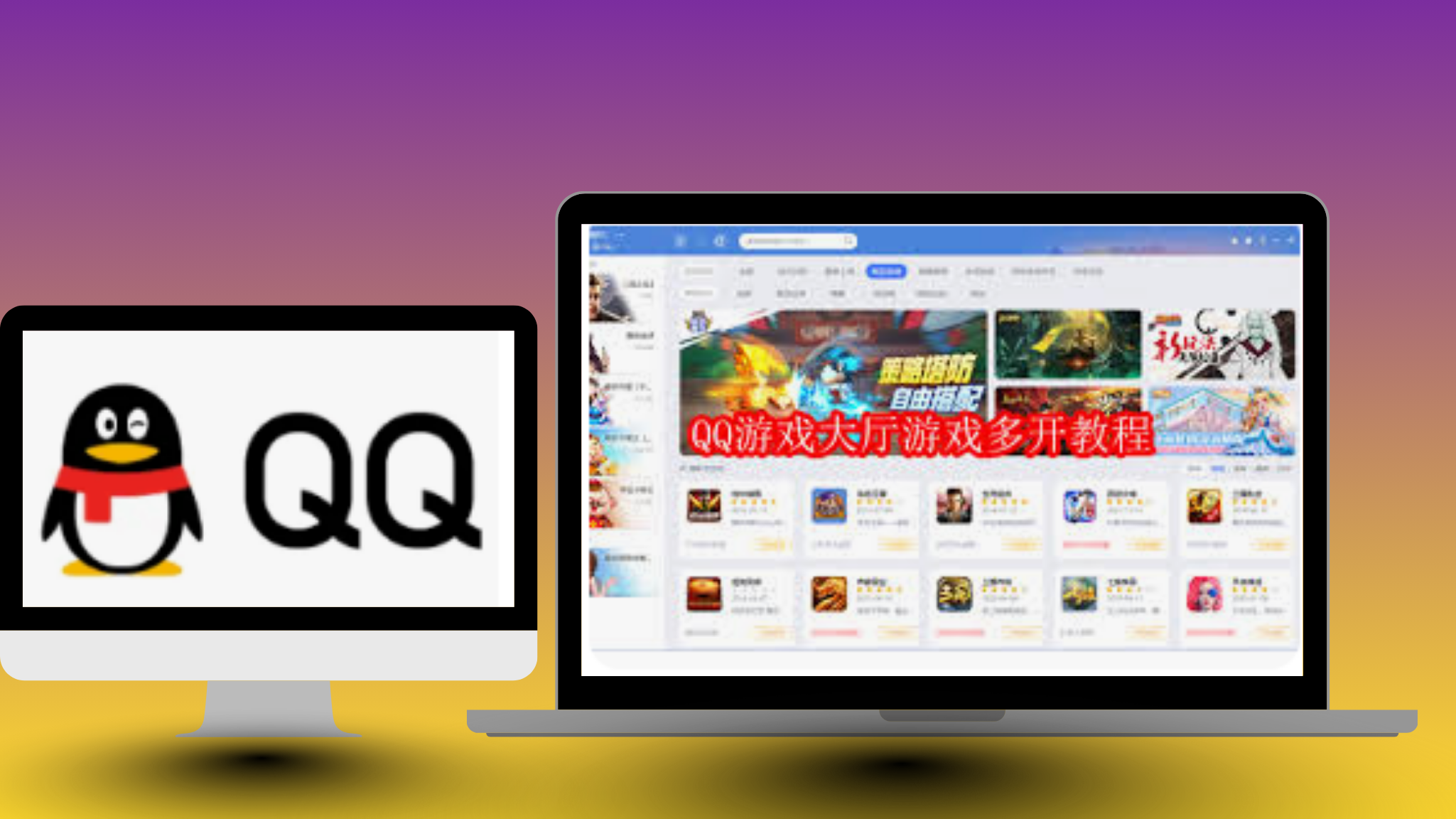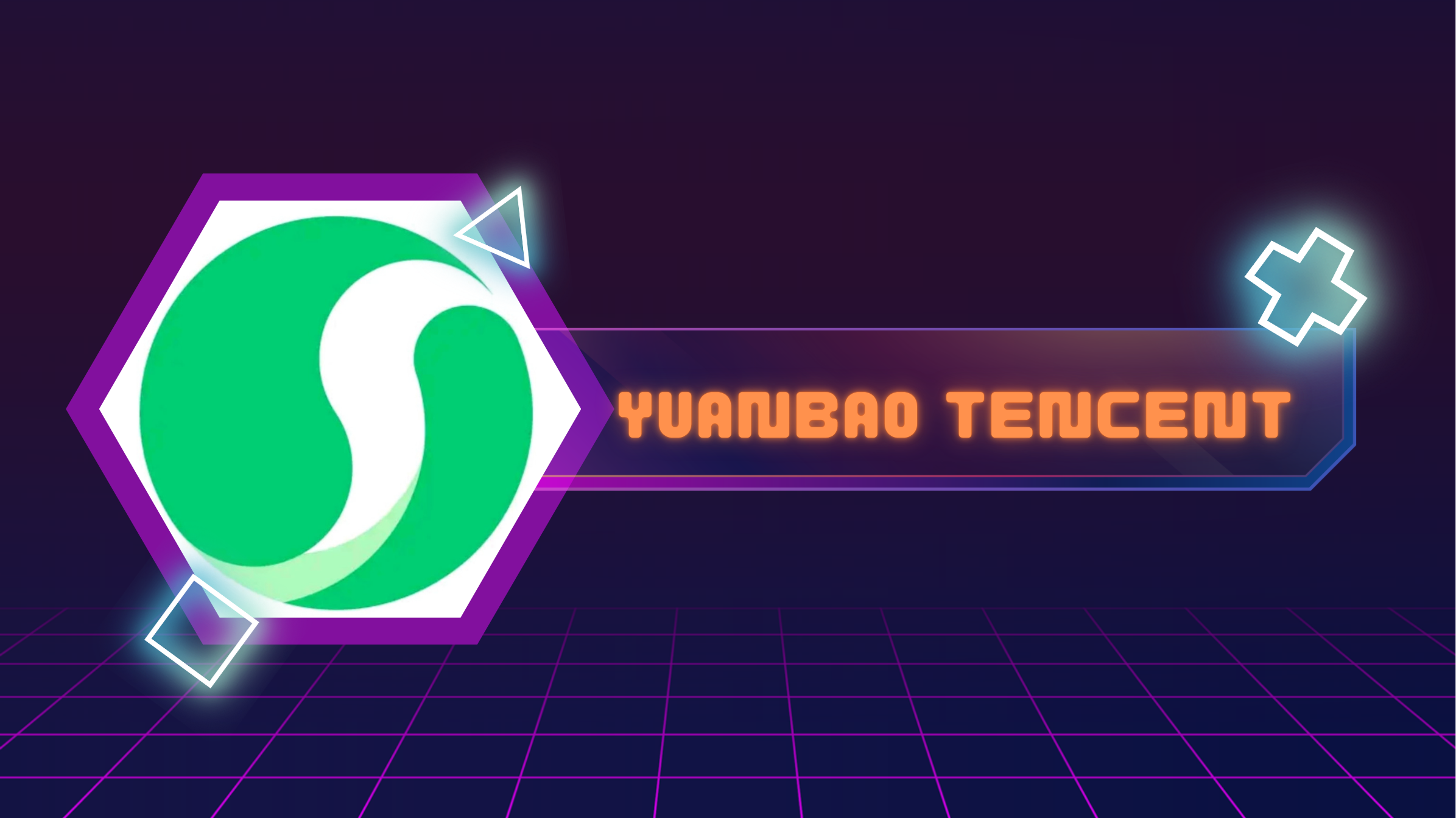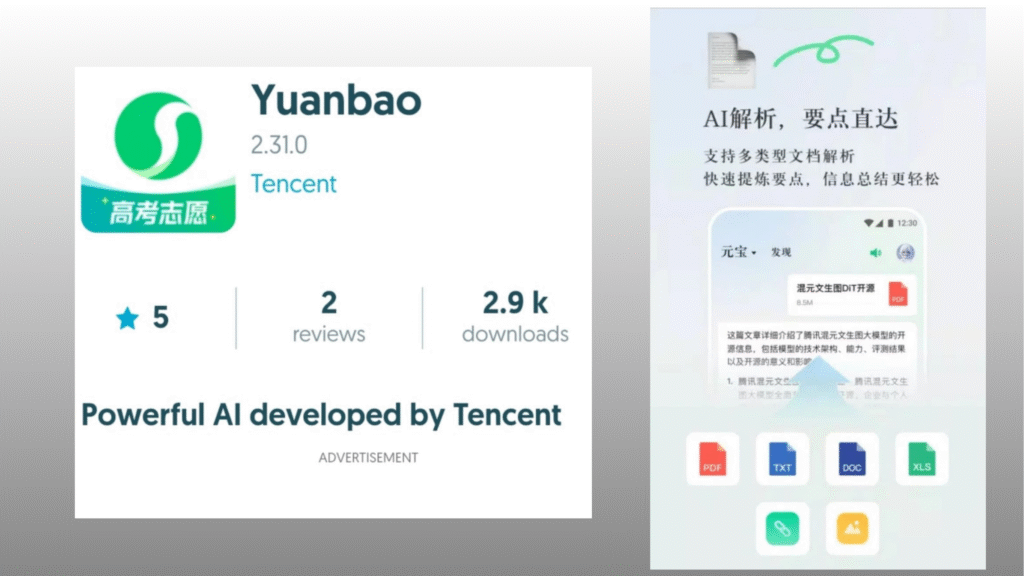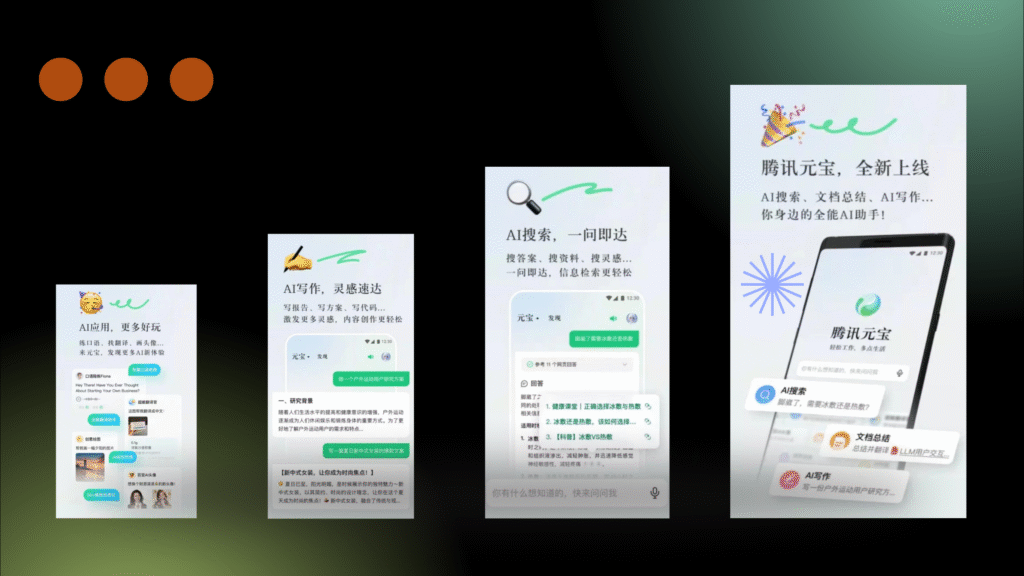Originating in China and operated by Tencent, QQ stands as one of the world’s most enduring and influential messaging platforms—this article explores its history, features, global reach, international versions, and the controversies that have shaped its evolution in the digital communication landscape.
Introduction to QQ:
Originating from China in 1999 and operated by Tencent, QQ has evolved into a prominent and enduring instant messaging platform. With an expansive user base of 572 million individuals, QQ stands as a cornerstone in the digital communication landscape. Impressively, the platform sees active daily engagement from 267 million users, underscoring its sustained popularity and integral role in fostering real-time connections and interactions among a vast audience. QQ’s enduring presence reflects its significance in shaping the digital communication habits of users in China and beyond.
Under the guidance of Ma Huateng, Tencent experienced significant expansion, diversifying its offerings to encompass a wide array of “online lifestyle services, as outlined by the company.
Importance in China and Southeast Asia
For individuals engaged in business, residing in, or socializing within China and Southeast Asia, QQ emerges as an indispensable tool. Despite its language barrier, its intuitive interface facilitates seamless communication on the go.
Features and Functionalities
QQ offers a range of features, including native support for group video calls, real-time translation for text conversations, and the ability to share videos, photos, and files. Additionally, users can enhance their messaging experience with exclusive emojis and robust voice calling capabilities.
Pros
- Voice and Video Chat, Group Calling, and More: QQ boasts a plethora of features such as voice and video calling, group voice and video chat, file sharing, and a built-in translator supporting multiple languages.
- Over 1,000,000,000 Registered Users: With a staggering user base exceeding one billion, QQ stands out as one of the most utilized chat applications globally, particularly dominating the Asian market.
- The Best Way to Chat in China: Whether for educational, business, or travel purposes, QQ serves as the optimal platform for staying connected within China’s dynamic environment.
Language Considerations
QQ primarily operates in Chinese, requiring users seeking an English version to download QQi (QQInternational). However, it’s essential to note that not all features from the original app are available in the International version.
Language Barrier
One notable drawback of QQ is its primary language of operation, which is Chinese. For users who are not proficient in Chinese, navigating the app interface can pose a significant challenge. However, a workaround exists in the form of the QQInternational app, specifically designed to cater to non-Chinese speakers.
Introduction to QQ International
QQ International, an extension of the popular Chinese messaging platform QQ, was introduced to cater to non-Mandarin speakers worldwide. This article delves into the unique features and functionalities of QQ International across various operating systems.
Windows Client
QQ International debuted its Windows client in 2009, marking its venture into the international market. This version offers English-speaking users access to most features available in the Chinese counterpart, facilitating communication through chat, VoIP, and video calls. Additionally, it provides a non-Mandarin interface for accessing Qzone, Tencent’s social network. The client supports multiple languages, including English, French, Spanish, German, Korean, Japanese, and Traditional Chinese, with a standout feature being the optional automatic machine translation in all chats.
Android Application
In September 2013, QQ International expanded its reach with the release of its Android application. The interface of this version is available in several languages, mirroring its Windows counterpart. Users can exchange text messages, images, videos, and audio media messages. Furthermore, the integration of Qzone allows seamless sharing of multimedia content with contacts. Notably, the Android version features a live translation function for incoming messages, supporting up to 18 languages.
iOS Compatibility
By the end of 2013, QQ International made its debut on iOS devices, including the iPhone. The iOS version offers identical functionality to its Android counterpart, ensuring a consistent user experience across platforms.
History:
Origin and Name Change
Tencent QQ made its debut in China in February 1999 under the moniker OICQ, standing for “Open ICQ,” a nod to the popular instant messaging service ICQ. However, due to the threat of a trademark infringement lawsuit from ICQ’s owner, AOL, the name was swiftly altered to QQ. The choice of “Q” and “QQ” was intended to evoke a sense of cuteness.
Evolution and Features
Initially modeled after ICQ, QQ quickly evolved, incorporating not only existing functions but also introducing novel features like software skins, user images, and emoticons. Initially launched as a “network paging” real-time communication service, QQ progressively integrated additional functionalities, including chatrooms, gaming, personal avatars akin to MSN’s “Meego,” online storage, and even internet dating services.
Platform Support
The official client of QQ primarily operates on Microsoft Windows, with a beta version made available for Mac OS X (version 10.4.9 or newer). Previously, two web versions, WebQQ (full version) and WebQQ Mini (Lite version), leveraged Ajax technology, catering to diverse user preferences. However, the support and availability of WebQQ Mini have been discontinued. While Tencent did release an official Linux client in July 2008, it lacks compatibility with the Windows version and lacks voice chat capabilities.
Response to Competition
To counter the rising competition from other instant messengers, such as Windows Live Messenger, Tencent launched Tencent Messenger, specifically targeting business users with tailored features and functionalities.
Exploration of Open Source Clients
Driven by reverse engineering efforts, open-source communities have delved into deciphering the QQ protocol, aiming to develop client core libraries compatible with more user-friendly, advertisement-free clients. These endeavors have resulted in the creation of cross-platform solutions, expanding accessibility to users on operating systems not supported by the official QQ client. However, these alternative implementations have historically offered only a subset of functions compared to the official client, thus limiting their feature set.
Challenges with QQ Protocol Evolution
Despite the strides made by third-party implementations, Tencent, QQ’s parent company, has continually modified the QQ protocol across successive versions. These modifications have rendered many third-party implementations obsolete, unable to support the evolving protocol. Consequently, as of 2009, developers of third-party clients have not disclosed any plans to restore QQ support.
Notable Open Source Clients
Several notable open-source clients have emerged in the pursuit of providing alternative QQ experiences:
Pidgin
Pidgin stands out as an open-source cross-platform multiprotocol client. While it supports QQ through third-party plugins, its compatibility with the protocol has faced challenges over time.
Adium
Adium, an open-source client exclusive to macOS, also offers QQ support through third-party plugins built upon libqq-pidgin. However, similar to Pidgin, its QQ functionality has been affected by protocol modifications.
Kopete
Designed for KDE environments, Kopete is an open-source multiprotocol client. Although it previously supported QQ through libpurple, changes to the protocol have led to the discontinuation of QQ support in older versions.
Miranda NG
Miranda NG is an open-source multiprotocol client tailored for Microsoft Windows. It offers QQ support through the MirandaQQ2 plugin, providing an alternative QQ experience on the Windows platform.
Eva
Eva is another open-source client aiming to provide QQ functionality. However, its development status and compatibility with recent QQ protocol iterations may vary.
Evolution of Membership Policies
In 2002, Tencent made a pivotal decision to halt free membership registrations, mandating all new members to pay a fee. However, this strategy was short-lived as it faced backlash from competitors like Windows Live Messenger and Sina UC. Consequently, in 2003, Tencent reversed its membership policy, reinstating free registration.
Premium Membership Scheme
Presently, Tencent offers a premium membership scheme wherein subscribers unlock exclusive features and benefits. Premium members gain access to QQ mobile services, ringtone downloads, and the ability to send and receive SMS messages through the platform. Moreover, Tencent introduces “Diamond” level memberships, comprising seven distinct schemes tailored to diverse user preferences:
Red Diamond Scheme
- This scheme is dedicated to the QQ Show service, offering superficial abilities such as colored account names.
Yellow Diamond Scheme
- Subscribers to this scheme enjoy additional storage and decorations within Qzone, a popular blog service.
Blue Diamond Scheme
- Designed for avid gamers, this scheme grants special abilities within various QQ games.
Purple Diamond Scheme
- Tailored for gaming enthusiasts, this scheme provides special abilities in specific games like QQ Speed, QQ Nana, and QQ Tang.
Pink Diamond Scheme
- Geared towards players of the QQ Pet game, subscribers receive different boosts to enhance their pet-raising experience.
Green Diamond Scheme
- Enthusiasts of QQ music benefit from this scheme, allowing users to stream music online seamlessly.
VIP Diamond Scheme
- Subscribers to this scheme enjoy enhanced features within the chat client, including the removal of advertisements for an uninterrupted messaging experience.
Black Diamond Scheme
- This scheme caters to players of Dungeon & Fighter (DNF), a multiplayer PC beat ’em up video game, offering various benefits related to the game.
Tencent has forged a strategic partnership with ibibo in India, introducing a range of services including chat, email, and gaming to the burgeoning Indian internet landscape. This collaboration aims to cater to the evolving needs of Indian internet users and enhance their online experience.
Expansion into Vietnam
In Vietnam, Tencent has entered into a partnership with VinaGame, a prominent player in the Vietnamese gaming industry. Through this collaboration, Tencent introduces the QQ Casual Gaming portal and QQ Messenger, enriching the vibrant Vietnamese gaming communities with innovative gaming and communication solutions.
Venture into the US Market
Tencent has joined forces with AOL in the United States to introduce QQ Games, positioning itself in the competitive US social gaming market. Launched in 2007, QQ Games was bundled with the AIM installer, providing a platform for users to engage in social gaming experiences. This partnership aimed to rival AOL’s own games.com and offer a diverse gaming ecosystem to the AIM user base.
Coral QQ Copyright Lawsuit
Coral QQ, a modification of Tencent QQ developed by Chen Shoufu, aimed to provide free access to certain services while blocking Tencent’s advertisements. However, in 2006, Tencent filed a copyright lawsuit against Chen Shoufu, asserting that his distribution of the modified Tencent QQ was illegal. Subsequently, Chen released his modification as a separate add-on. The legal dispute escalated, leading to Chen’s detainment in 2007 on allegations of profiting from his ad-blocking add-on, ultimately resulting in a three-year prison sentence.
Dispute with Qihoo 360
In 2010, Qihoo 360, a Chinese anti-virus company, accused QQ of unauthorized scanning of users’ computers and uploading their personal information to QQ’s servers. Tencent retaliated by labeling 360 as malware and restricting access to QQ’s services for users who installed 360. The Chinese Ministry of Industry and Information intervened, criticizing both companies for “improper competition” and urging them to resolve the dispute.
Government Surveillance Concerns
Critics have raised concerns regarding QQ’s cooperation with Chinese government surveillance and censorship efforts. Reports suggest that QQ allows authorities to monitor online conversations for specific keywords or phrases, facilitating user tracking by their unique identifiers. This collaboration with government surveillance practices has drawn scrutiny from privacy advocates.
Adware Allegations
The Chinese version of QQ has faced criticism for its embedded advertisements. Some antivirus and anti-spyware vendors have labeled older versions of the client as malicious adware. Tests conducted in 2013 identified QQ as malware by several antivirus programs, with detections primarily categorizing it as a trojan, raising questions about its security and integrity.
Conclusion:
QQ, originating from China in 1999 and operated by Tencent, has established itself as a cornerstone in the realm of digital communication. With a staggering user base exceeding 572 million individuals, QQ remains an integral part of the online interaction landscape. Its active daily engagement from 267 million users underscores its enduring popularity and significance in facilitating real-time connections and interactions on a massive scale.
The platform’s importance extends beyond China, playing a vital role in Southeast Asia and beyond, particularly in business, social, and educational contexts. Despite its initial language barrier, QQ International bridges linguistic gaps, ensuring seamless communication for non-Mandarin speakers worldwide.
QQ’s feature-rich environment, including group video calls, real-time translation, and multimedia sharing capabilities, caters to diverse communication needs. Furthermore, its premium membership scheme, offering exclusive benefits and features, reflects Tencent’s commitment to enhancing user experience and satisfaction.
However, QQ has not been immune to controversies and criticisms. Legal disputes, such as the Coral QQ copyright lawsuit, and allegations of unauthorized data scanning and government surveillance have marred its reputation. Additionally, concerns regarding adware and malware allegations raise questions about its security and integrity.
Despite these challenges, QQ remains resilient, continuously evolving to meet the evolving demands of its vast user base. Its enduring presence speaks volumes about its enduring relevance and impact in shaping digital communication habits, not only in China but globally. As technology advances and user preferences evolve, QQ’s ability to adapt and innovate will be crucial in maintaining its position as a leader in the digital communication landscape.
FAQs:
- What is the origin of QQ and who operates it?
- QQ originated in China in 1999 and is operated by Tencent.
- How many users does QQ have, and what is its daily engagement rate?
- QQ boasts a user base of 572 million individuals, with 267 million users engaging daily.
- What are some notable features of QQ?
- QQ offers native support for group video calls, real-time translation for text conversations, multimedia sharing, and exclusive emojis.
- What is the primary language of operation for QQ, and how can non-Chinese speakers access it?
- QQ primarily operates in Chinese, but non-Chinese speakers can use the QQ International (QQi) app, available for download.
- When was the QQ International Windows client introduced, and what languages does it support?
- The Windows client of QQ International debuted in 2009, supporting languages such as English, French, Spanish, German, Korean, Japanese, and Traditional Chinese.
- What functionalities does the QQ International Android application offer?
- The Android application allows users to exchange text messages, images, videos, and audio messages, with support for live translation of incoming messages in up to 18 languages.
- What is the significance of QQ’s partnership with ibibo in India?
- Tencent’s partnership with ibibo introduces QQ services such as chat, email, and gaming to the Indian internet landscape.
- How did QQ respond to the dispute with Qihoo 360 in 2010?
- QQ labeled Qihoo 360 as malware and restricted access to QQ’s services for users who installed 360.
- What concerns have been raised regarding QQ’s cooperation with Chinese government surveillance efforts?
- Critics have raised concerns that QQ allows authorities to monitor online conversations for specific keywords or phrases, facilitating user tracking.
- How has the Chinese version of QQ been criticized regarding advertisements?
- Some antivirus programs have labeled older versions of the Chinese QQ client as malicious adware due to embedded advertisements.

Prof. Mian Waqar Ahmad
Prof. Mian Waqar Ahmad, a dynamic force straddling the realms of academia and digital media. As a distinguished Lecturer in Information Sciences, he imparts knowledge within the academic sphere, igniting the minds of his students. Beyond the classroom, Prof. Mian Waqar Ahmad dons the hat of a seasoned blogger on Worldstan.com, where his insightful posts delve into the intricacies of information sciences. His digital footprint extends even further as a YouTuber, leveraging the platform to share his expertise and make complex concepts accessible to a global audience. Prof. Mian Waqar Ahmad’s journey embodies the fusion of traditional education and contemporary digital outreach, leaving an indelible mark on the evolving landscape of information sciences. Explore his world at Worldstan.com and witness the convergence of academia and the digital frontier.




